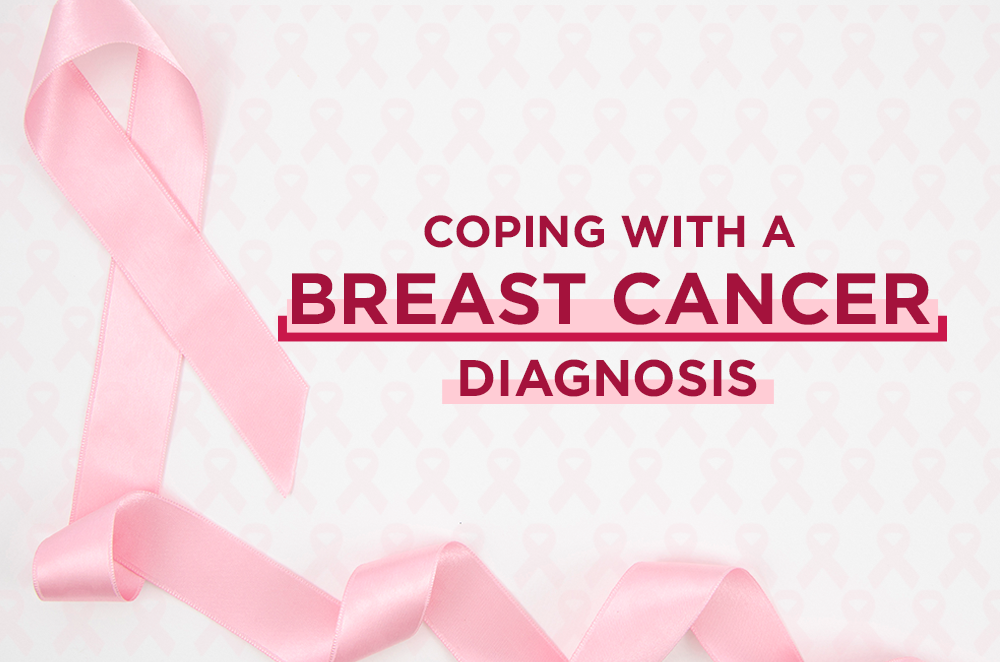Receiving a breast cancer diagnosis can be a life-altering moment, one that is often accompanied by a whirlwind of emotions, questions, and uncertainty. Coping with breast cancer is a journey that requires strength, support, and resilience. In this blog, we’ll share some insights to help individuals facing a breast cancer diagnosis cope with the challenges and uncertainties that lie ahead.
Acknowledge Your Emotions
The first step in coping with a breast cancer diagnosis is to recognize and accept your emotions. It’s completely normal to feel a range of emotions, including fear, anger, sadness, and anxiety. Remember that it’s ok to have these feelings; they are part of the process. Talking to a therapist, support group, or a trusted friend or family member can help you express your emotions and find solace in knowing you’re not alone.
Communicate with Your Healthcare Team
Knowledge can be empowering. Once you receive a breast cancer diagnosis, you may have many questions about the disease, its stages, treatment options, and possible outcomes. Take the time to gather information, ask your healthcare team questions, and understand your specific diagnosis. This will alleviate some of the uncertainty and help you make informed decisions about your treatment plan. Your healthcare team is your greatest resource. Discuss your treatment options, potential side effects, and any concerns you have. Establish a strong and trusting relationship with them to ensure that your needs and preferences are considered throughout your journey.
Understand Your Treatment Plan
Each breast cancer diagnosis is unique, and your treatment plan will be tailored to your specific circumstances. Make sure you understand the recommended treatment options and their potential side effects. It’s essential to have a clear picture of what to expect during treatment so you can be prepared.
Build a Support Network
Don’t go through this journey alone. Studies have shown that there is a real need to support the mental health of those diagnosed with breast cancer. Reach out to friends and family for support and consider joining a support group. Support networks, such as the Hope and Healing support group at the Cancer Centers of Southwest Oklahoma, provide an invaluable source of emotional support, and others who have experienced a breast cancer diagnosis can offer insights and advice. You are not alone, and there are people who care about you and are willing to help.
Stay Positive
While it’s normal to have moments of doubt and sadness, maintaining a positive outlook can make a significant difference in your experience. Surround yourself with positivity, practice gratitude, and stay hopeful about the future. Throughout your breast cancer journey, there will be moments of triumph and progress. Celebrate these small victories, whether it’s completing a round of treatment, reaching a milestone in your recovery, or simply having a good day.
Self-Care
Coping with a breast cancer diagnosis can be incredibly stressful. Physical and mental self-care are crucial during your breast cancer journey. Take time for activities that bring you joy and relaxation, such as meditation, yoga, or any hobbies you love. A healthy lifestyle, including regular exercise and a balanced diet, can also contribute to your overall well-being during treatment.
Coping with a breast cancer diagnosis is a challenging and emotional journey, but it’s also an opportunity to tap into your inner strength and resilience. Surround yourself with a strong support network, stay informed about your diagnosis and treatment, and practice self-care to maintain your physical and emotional well-being. Remember that you are not alone; there is hope for a brighter future.
Resources:
https://pubmed.ncbi.nlm.nih.gov/34482373/
https://www.ccswok.com/hope-and-healing-support-group/
Disclaimer
The Comanche County Memorial Hospital website does not provide specific medical advice for individual cases. Comanche County Memorial Hospital does not endorse any medical or professional services obtained through information provided on this site, articles on the site or any links on this site.
Use of the information obtained by the Comanche County Memorial Hospital website does not replace medical advice given by a qualified medical provider to meet the medical needs of our readers or others.
While content is frequently updated, medical information changes quickly. Information may be out of date, and/or contain inaccuracies or typographical errors. For questions or concerns, please contact us at contact@ccmhhealth.com.

